Game-Changing Technology Area
“Game-Changing Technology Area” were newly established at the same time as the Enabling Technology project and were launched in fiscal 2015. Promising issues not ready for transfer to the Enabling Technology project will be incubated in these “Game-Changing Technology Area”. The projects were currently promoted with 19 issues in fiscal 2017.
G1 Solar Cell and Solar Energy Systems
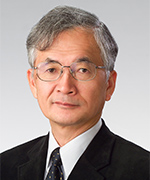
Atsuhiro Osuka
Professor, Kyoto University
Solar energy use, including solar cells, has already prevailed in the society as one of the extremely promising technologies for renewable energy. Competing with the commercial Si-based solar cell module technologies, we wish to further develop the solar cell and solar energy utilizing system which are addressed in ALCA.
Specifically, the project is to be subjected for development of the solar cell with high energy conversion efficiency (compared with the conventional solar cell), production of new materials for solar cells, creation of manufacturing process of low cost solar cells such as large surface manufacturing technology, and development of a solar energy utilizing system integrated with these technologies. Especially, we are going to promote the research and development in perovskite solar cells, which were first reported by Miyasaka et al. in Japan and have been addressed in the ALCA Tech. Area. In addition, we also aim to develop other innovative solar thermal energy technology.
G2 Superconducting Systems
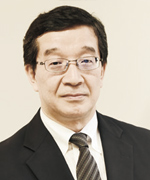
Hiroyuki Ohsaki
Professor, The University of Tokyo
“Superconducting systems,” which utilize the zero electrical resistance of superconductors, represent an area of technology in which substantial energy savings can bring about decreased carbon emission in a wide range of fields including electric power, transportation, industries, and computing.
In the field of electric power, for example, research and development of technologies including on superconductive power generators, superconductive electrical cables, and superconductive energy storage units, is being carried out. Superconductive instrument systems including cooling systems may be realized in the future, which would result in great changes to conventional electric device systems. Superconductive motors and magnets, combined with various advanced elemental technologies, may also be able to greatly improve the efficiency of energy devices.
G3 Electric Storage Devices
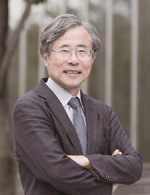
Kohei Uosaki
Fellow, National Institute for Materials Science
It is requested to further spread Electric Vehicles (EVs) and renewable energy generation for reducing GHG emission. For example, in order to improve the cruising distance of EVs, the electricity storage device has to provide both higher energy density and higher power. In addition, as the power generation based on the renewable energy increases, the stationary electricity storage devices become more necessary for stabilizing the short-term fluctuation load in the electricity system. In this ALCA Tech. Area, we are promoting the R&D for the innovative electricity storage device as the key technologies.
※ All projects have been completed in 2019.G4 Ultra Heat-Resistant Materials and High Quality Recyclable Steel
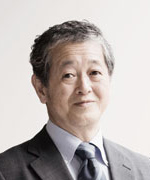
Kohmei Halada
Emeritus Researcher, National Institute for Materials Science
Decreasing the carbon dioxide emissions of the power generation, metal, and transportation industries, which emit large quantities of greenhouse gas, is an urgent issue for achieving a low carbon society. Carbon dioxide emissions must be decreased through improved energy efficiency by improving the performance of heat-resistant materials that are used for power generation turbines, jet engines for airplanes, and other applications. To achieve this, ALCA aims to develop technologies to substantially improve the properties of these materials, such as their high-temperature strength, room-temperature resilience, oxidation resistance, as well as technologies for their production and heat-resistant coating.
In addition, other research subjects include establishing manufacturing technologies for high-strength and high-performance materials from recycled raw materials, in order decrease the energy consumption of recycling, and the creation of structure-control to realize high performance while decreasing the amount of rare metals to be added.
Furthermore, ALCA will develop innovative metal and ceramic materials for the manufacture of lighter and stronger materials, in order to produce lighter transportation equipment that consumes less energy.
G5 Biotechnology

Akihiko Kondo
Professor, Kobe University
From the view point of energysaving such as carbon neutral and bioprocess with the advanced technologies in various domains of biotechnology, we are contributing to a large reduction of GHG emission. Specifically, we cover the research and development of carbon fixation technology by biomass plant breeding, biomass conversion technology, direct conversion technology of CO2, and other conversion technologies of various organic resources. We also promote the interdisciplinary research and development based on microbial science, plant science and bioprocessing science, which goes beyond the conventional framework.
※ All projects have been completed in 2020.G6 Innovative Energy-Saving and Energy-Producing Chemical Processes
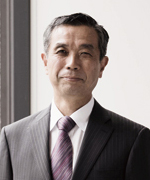
Takashi Tatsumi
President, National Institute of Technology and Evaluation
On the basis of chemistry, we are going to conduct the research for development of game-changing low carbon technology. We cover the research and development for chemical processes that can create a paradigm shift and pave a way to realize a low carbon society while greatly reducing CO2 emission. Specifically, we promote cutting-edge research and technical development such as energy-saving technology for manufacturing chemical products with efficient conversion technology from biomass into chemicals and fuels, and new CO2 separating technology with low energy and cost, long-term CO2 fixation technology and so on.
※ All projects have been completed in 2018.G7 Innovative Energy-Saving and Energy-Producing Systems and Devices

Kenji Taniguchi
Special appointed professor, Osaka University
We are going to conduct the research and development of advanced technology based on physics. We address a wide range of problems from new conceptual research to technological development aimed at social implementation. Taking into consideration the social return as outcomes of energy-saving or energy-creating technologies, we promote them. Specifically, we cover research and development which has great potential to reduce GHG emission such as an innovative power device system and ultra-low loss technology for the existing system.
※ All projects have been completed in 2019.



